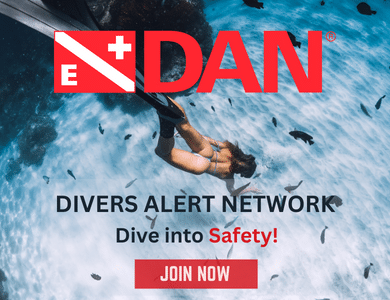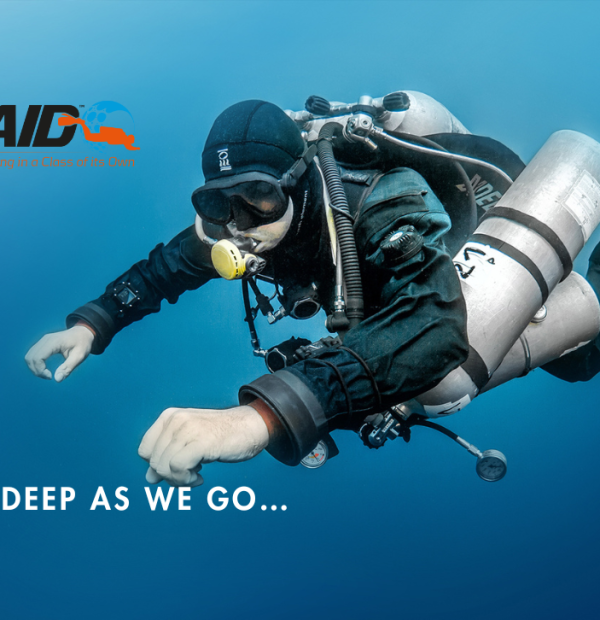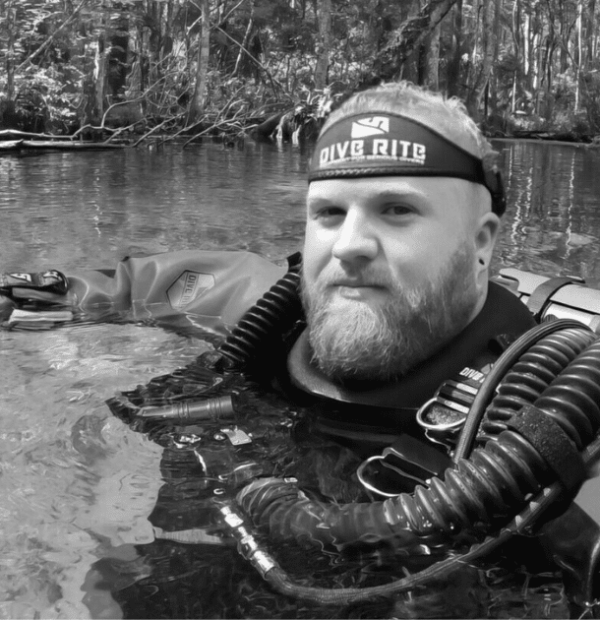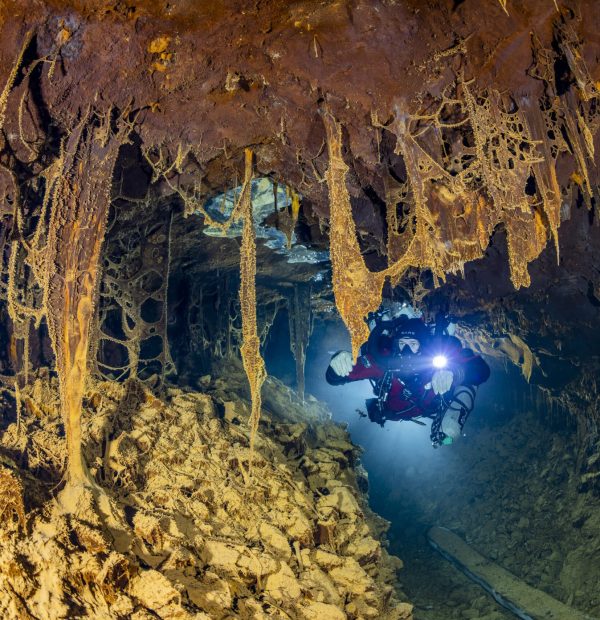Thursday, 16 May 2024
Menu

The easiest way is to enter the phrase: diving courses + city in the search engine and add the criterion – price. This is the easiest and fastest way … to get to a bad diving school or a bad instructor. Why?
When looking for a diving school or diving instructor, we must remember about several fundamental issues. Firstly, it is worth checking whether the dive centre has a place where we can learn in suitable conditions. It is better to make sure that the company chosen by us has a lecture hall, so that we do not end up with a virtual centre and lectures “under the palm tree” at the pool.
Secondly, it is worth checking in what conditions the equipment is stored at the centre. This shows both the instructor and their approach to doing courses.
Thirdly, it is worth noting what the course price includes and what this price is. There are many offers on the market that tempt you with lower costs, but during the course you will find out that you have to pay extra for the book, you also have to pay extra for the swimming pool etc…
Fourthly, you should ask how large the groups are during courses. If the instructor takes more than 4 people to the pool or more than two underwater in an open water area, it means that he wants to save money.
On a basic course, it is difficult to manage a group larger than four people during pool activities. So if we want to learn to dive, we should avoid large groups. In open waters (lakes, rivers, the sea) going underwater with OWD students in more than two persons is a joke. Unless the instructor has at least one divemaster to help and has a properly prepared underwater infrastructure (e.g. platforms).
Fifth – organisation. Let us remember, that if the instructor begins the course by talking about how great is the organisation, in which we will be trained, it means, that probably he has nothing to offer. We are not taught to dive by an organisation, but by an instructor. In whatever great system it would be, at the very end it is us and the instructor, who is to transfer knowledge. Therefore, it is worth checking what experience he has, what degree he has and if he continues to improve his qualifications. It does not hurt to ask what he can offer us in terms of advanced courses. We do not have to do them, but the skills of the instructor will certainly translate into our skills and a sense of security that we are learning under the supervision of a professional.
Sixthly, you should check what the course itself is like. It depends on the federation, but in most international federations the course consists of 3 parts – theory, practical classes and open water dives.
Theory includes lectures and self-study at home, videos, presentations and tests. If the course lacks any of these elements or the instructor gives us a photocopy of the materials, it means that he saved on us. I wonder if he will teach us everything at the swimming pool ;).
Practical classes take place in a swimming pool. Most diving federations are obliged to conduct such classes. The classes should be conducted in full diving gear. If the instructor says that wetsuits are unnecessary for the pool, it means that he wants to save money on you. If the instructor says that we will do the pools in a lake, because it is better to learn in more difficult conditions, it is the same as learning to shoot on a battlefield.
Remember that recreational diving is a hobby. It should be nice, pleasant and safe. What we learn at the beginning will only pay off later. Do not let yourself be persuaded to take classes only in the lake. Why not? In a swimming pool we have warm, clear water and a hard bottom. In such conditions we learn all the necessary exercises and behaviour. We see an instructor who can show us exactly what and how it should look like. In a lake we often don’t have such an opportunity even being 1 on 1, because the clarity and the bottom (muddy) don’t allow us to see it. In addition, cold water certainly doesn’t help to concentrate.
Let’s take our time. Good diving schools do not rush the pool. We have a set time and we need to use it well and do the right number of exercises. 1 pool should last an hour. During this time we should have time to practice and some free time. In fact, it is not so important the number of pools, but the time spent underwater and the number of exercises done correctly.
We do not skip exercises. If the instructor, and it should be the instructor (divemasters are not allowed to teach basic level OWD students), allows us to skip an exercise with which we have difficulty, it means that he cares about the number of students and remuneration, not about teaching us how to dive.
Open water dives depending on your needs, desire and wallet can be done anywhere in the world. Either we will go there with our instructor or with the transfer form we will complete the course in any corner of the world. If we finish the course in Poland, practical classes in a swimming pool will prepare us best for cold inland waters or the Baltic Sea.
Diving in Poland or in warm waters? There is a question where is better. Personally, I recommend starting your diving adventure in Poland. Why? In most of our native waters we have dark and cold waters. If we correctly perform practical activities in a pool we are prepared to enter dark and cold water. After training dives in more difficult conditions we will have no problems in warm waters.
Besides, there are really many interesting things to see underwater in our lakes. Of course, you can also do all the dives in warm waters and never go into cold ones and enjoy diving too.
Training dives should last a minimum of 20 minutes (or we must use 1400l of gas that we breathe during the dive – usually it is compressed air). The dive should be deeper than 5-6 meters. If any of these conditions is not fulfilled it means that the dive should not be counted as a training dive but it is a so called reflow.
Seventhly, remember that you do not dive alone. If the instructor during the course allows you to dive alone or with a partner who is not an instructor, it means that he breaks the standards and exposes you to danger. Unfortunately, I have had the pleasure of watching an instructor who taught diving by standing on a pier and giving the students instructions on how to dive. You should stay as far away from such a diving school as possible.
Eighth – health. Most diving organisations will give you a questionnaire to complete before you join a course, in which you have to answer a number of questions. If you answer any of the questions with a confirmed illness then you must undergo a medical consultation. If “someone” suggests that writing an answer will NOT make things easier then you should change instructor and dive centre. It is advisable to have a periodic medical examination before taking the course.
Ninth – a diving course requires an appropriate amount of time to assimilate knowledge and find oneself in a new environment. If the course takes 3-4 days, either the student is very capable or he has paid little – see tenth.
To teach scuba diving, you have to spend time in a lecture, in a swimming pool, in a lake. If too little time is spent, then diving will not be taught. In addition to the time spent with the student, the instructor must also prepare for the lecture, load the cylinders, prepare the equipment – we do not realize this.
So before you go into the price and how long it will all take, ask yourself if YOU would do a good job in that time, for the money you yourself are willing to pay.
Tenthly, you need to realise that the lower the course price, the worse the knowledge you will receive. The bigger the discount and the more is left in your wallet, the more you will be surprised how quickly you finish the course and be patted on the back as part of the instructor’s recognition of what a “sucker” you are.
I have been saying for years: a high price does not guarantee a good course, but a low price guarantees a poor course. Don’t kid yourself that the instructor has made a discount especially for you because you are so lucky.
Remember that promotions always involve something. If the offer is very attractive, then the given diving centre or instructor had to save on something, because to make a good diving course you need time and work (see ninth).










Welcome to DIVERS24.COM, your daily source of scuba news, freediving, scuba diving information, and equipment reviews. Our comprehensive coverage of the dive industry from A to Z provides you with all the latest scuba news, training updates, underwater photography tips, and everything else related to scuba diving. Whether you’re a beginner or an experienced diver looking for more knowledge about scuba gear or techniques – we’ve got it covered! With our in-depth articles written by experienced divers who have been there and done that, you are sure to find exactly what you need here at Divers24.com. Dive into scuba news today!
Underwater Media Sp. z o.o.
Szafarnia 11/F8,
80-755 Gdansk, Poland
Welcome to DIVERS24.COM, your daily source of scuba news, freediving, and scuba diving information. Sign in for a weekly news update and discount coupons for dive gear and apparel.
@2023 - underwatermedia.pl. All Right Reserved. Designed and Developed by Tworzenie stron internetowych Gdansk

The Divers24 portal is currently the largest online medium treating diving in Poland. Since 2010 we have been providing interesting and important information from Poland and around the world on all forms of diving and related activities.
Contact us: info@divers24.com